K: Hi friends! First, let’s tell the readers a little about yourself!
C: [I’m] Charlie Manzano (he/him), I like to make zines and watch the Great British Bake-off. I run the Young Adult Facial/Bodily Difference and Disfigurement Network, as well as co-run the Transgender Cancer Patient Project and the Sick and Disabled Zine And Craft Fair. Most of my work centers healthcare activism and community.
R: [I’m] Roman Ruddick (they/them),- I love to live and work with animals, eat yummy food, and make art! Most of my art during quarantine has been boba themed (current yummy obsession), but typically I enjoy making art and zines related to cancer, healthcare, and gender. I co-run the transgender cancer patient project and the sick and disabled zine and craft fair, and participate in other community art and health related activism.
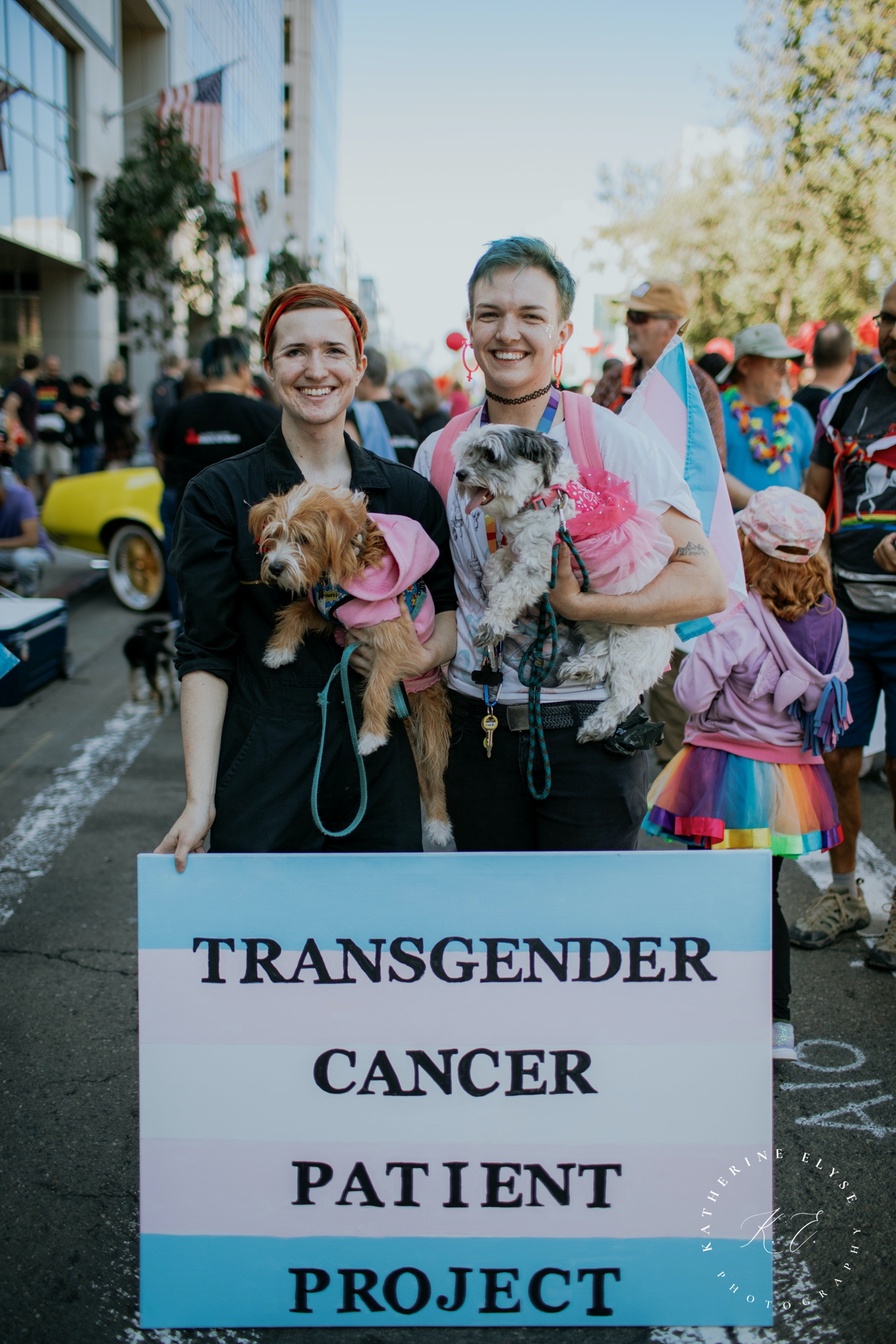
K: Thanks so much for these intros! I love hearing more about you both! Here are some questions for you… [first off], how did you two meet?
R: We met on Tumblr! Charlie started a “transgender cancer support” blog and [I] was his only follower. Embarrassing. lols.
K: What do you do for work and how are you involved with your community?
C/R: Neither of us are working right now due to COVID-19, but outside of work we are involved in community organizing. We run the Transgender Cancer Patient Project and just co-organized the Virtual Sick And Disabled Zine and Craft Fair!
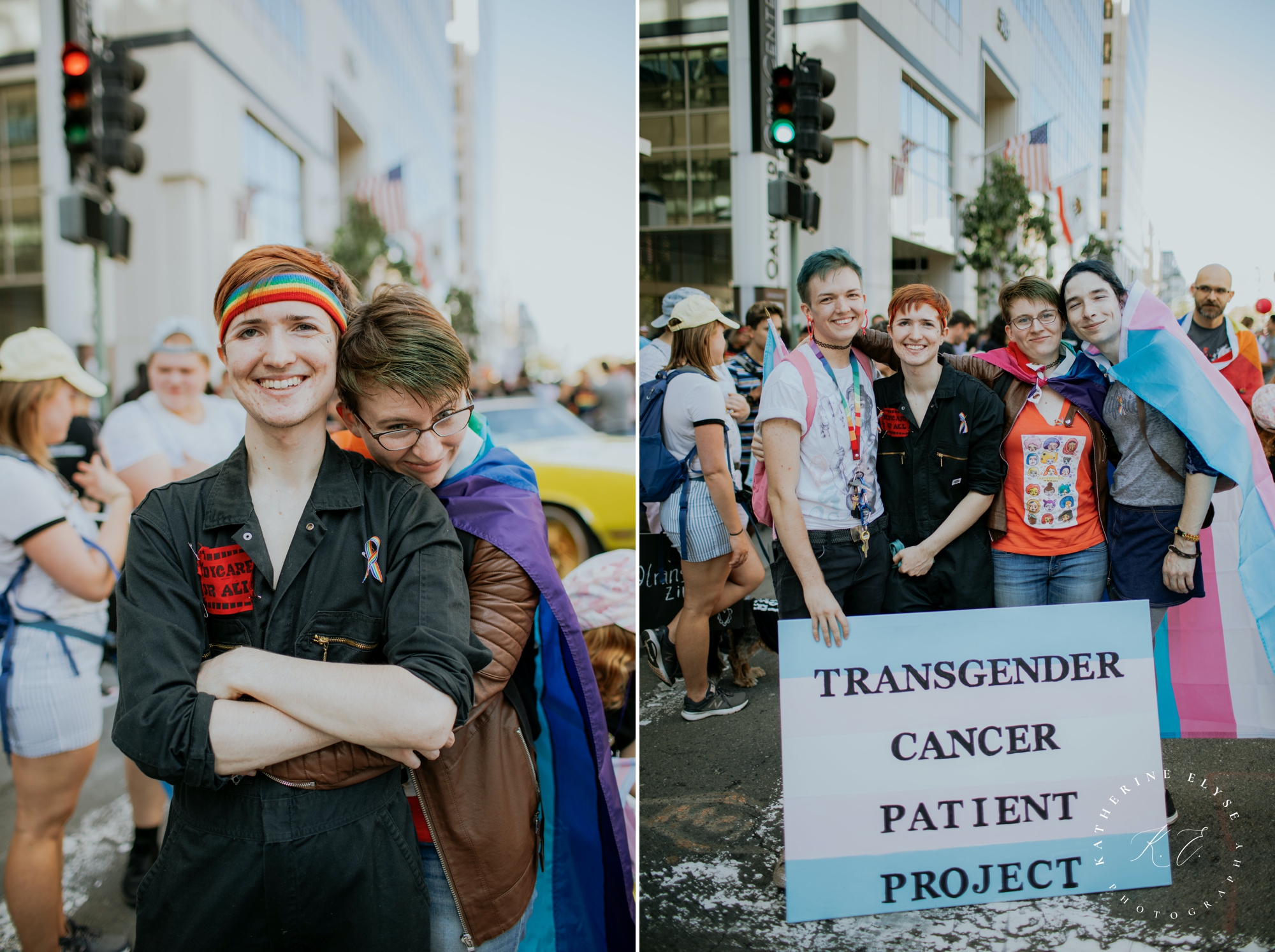
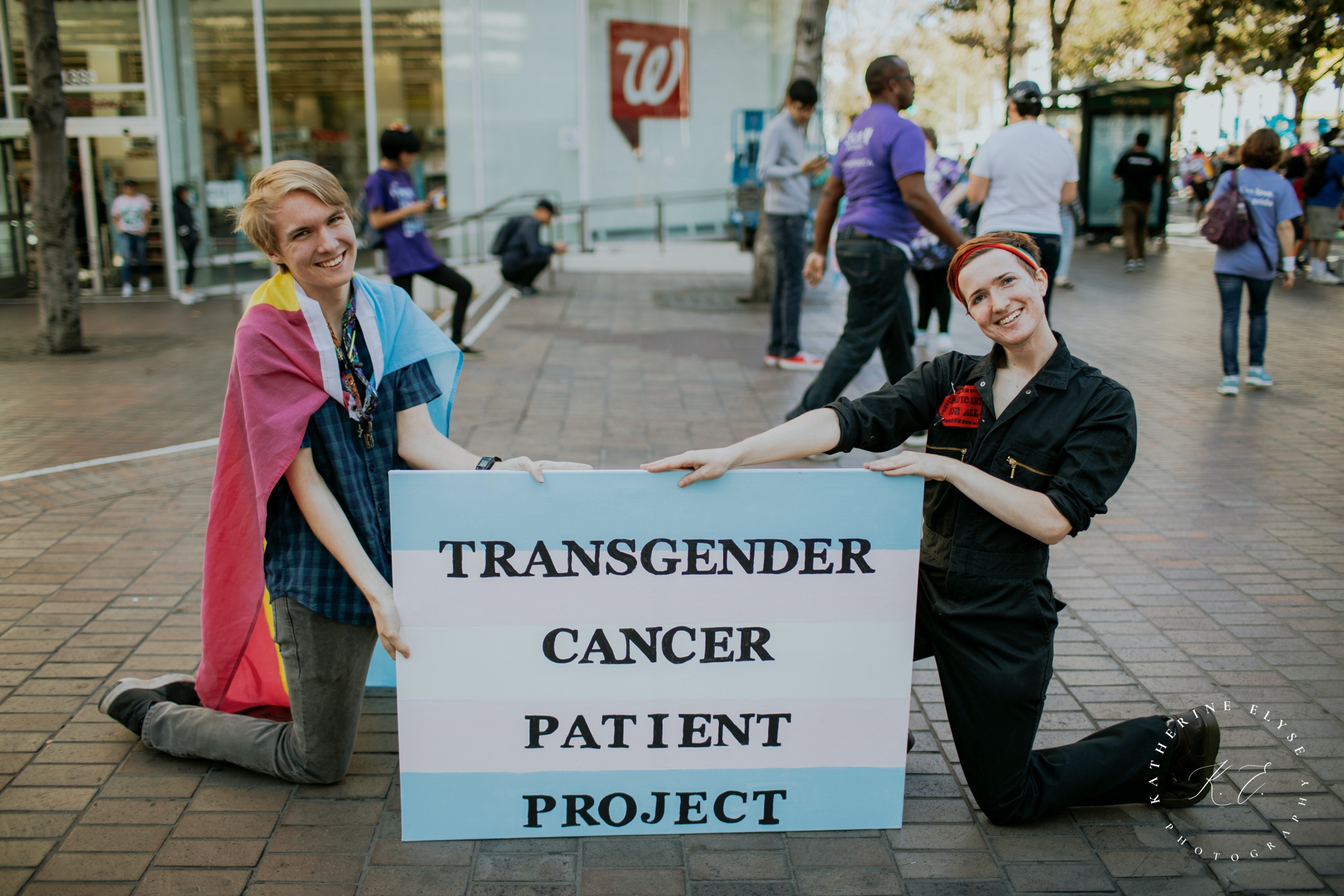
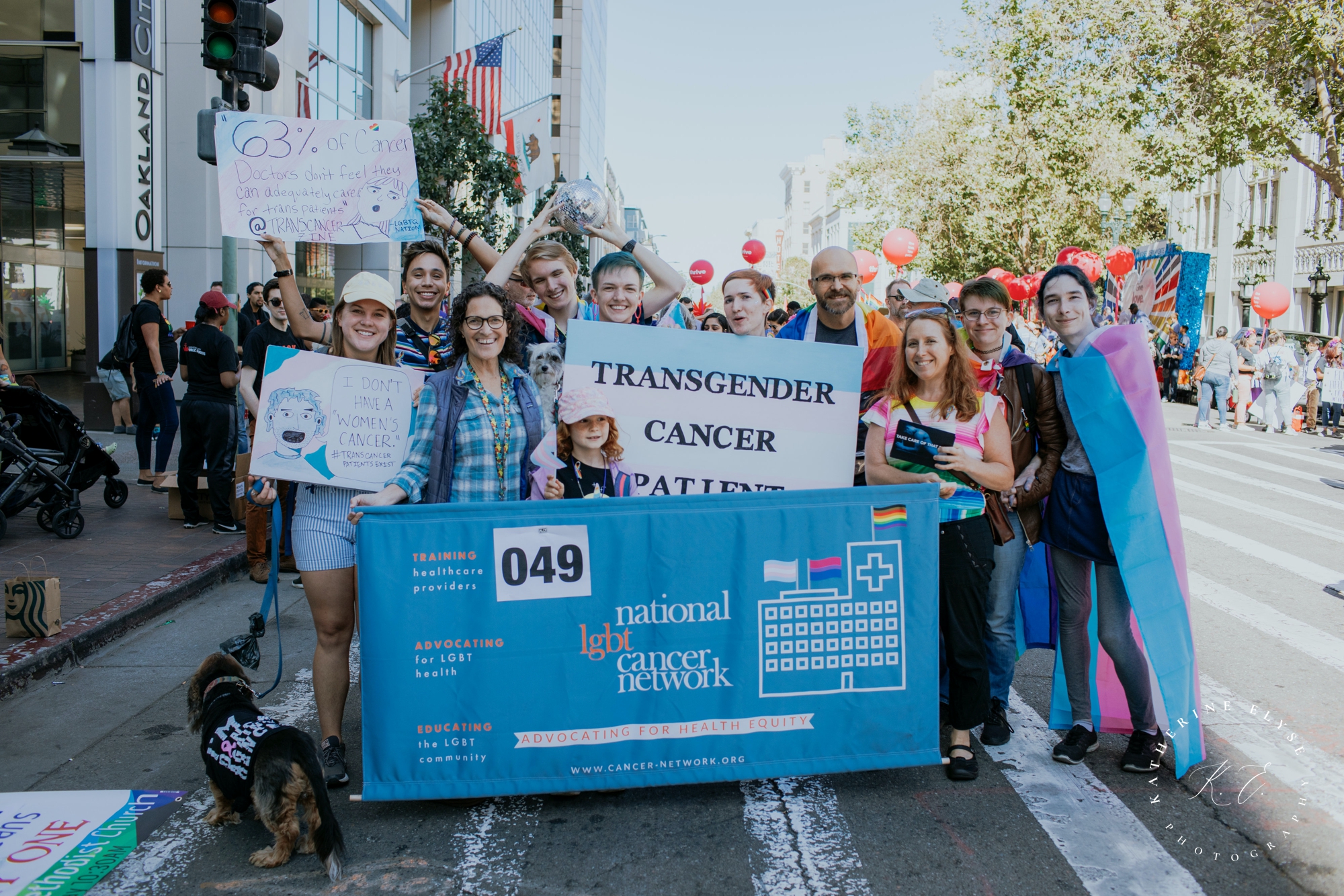
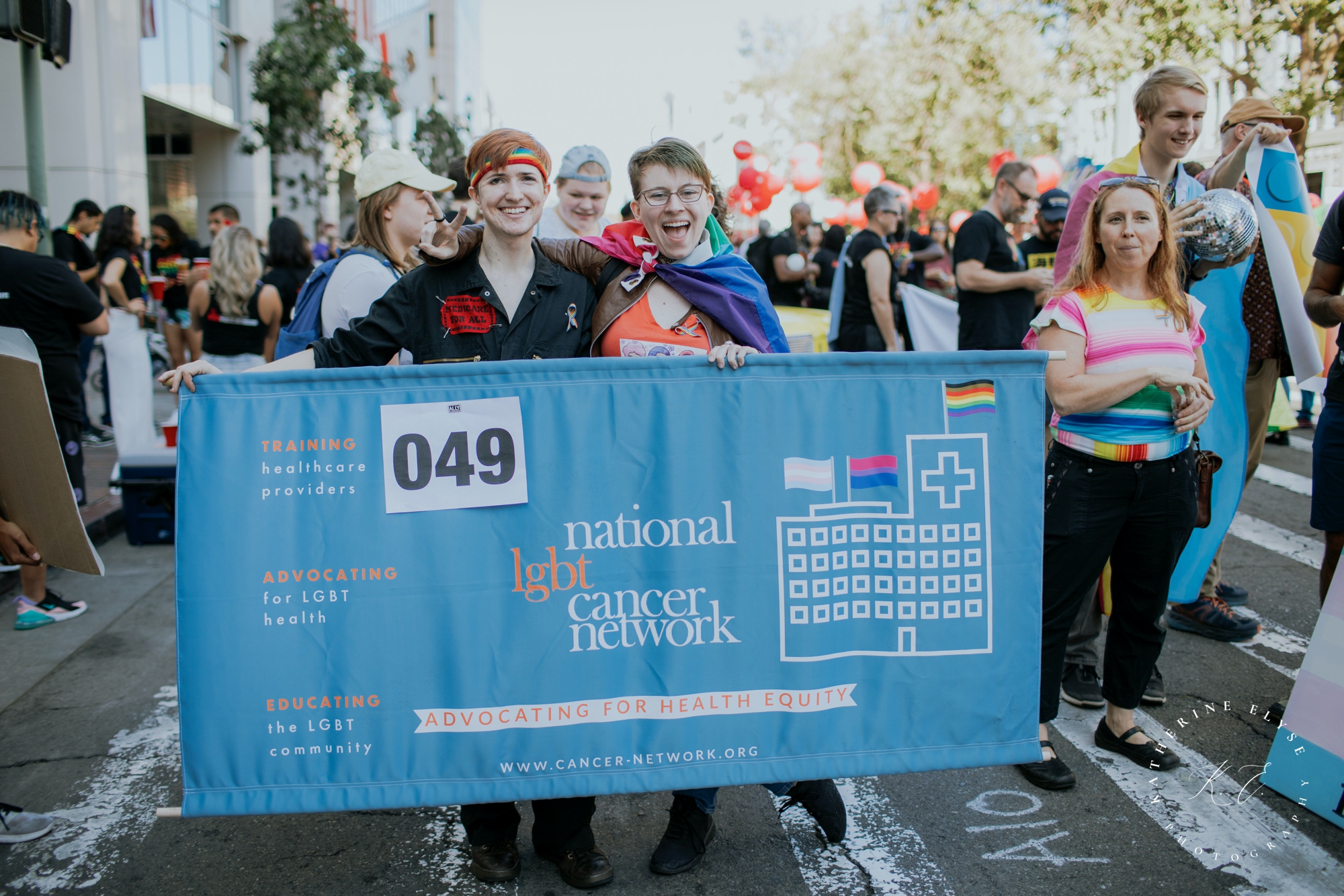
K: Tell me more about the TCPP and the Fair! How did you come up with the ideas and why are they important to you?
R: Charlie and I started the Transgender Cancer Patient Project because it was very apparent to us that cancer resources (and the healthcare system as a whole) were not created with trans people in mind, so we hoped to change that by creating resources and buliding community based on our own experiences as transgender cancer patients.
C: The Transgender Cancer Patient Project was created by Roman and I in search of community and resources, as trans cancer patients ourselves. There wasn’t much out there for trans patients, especially created by us, which is why we felt that it was so important to bring this project into fruition.
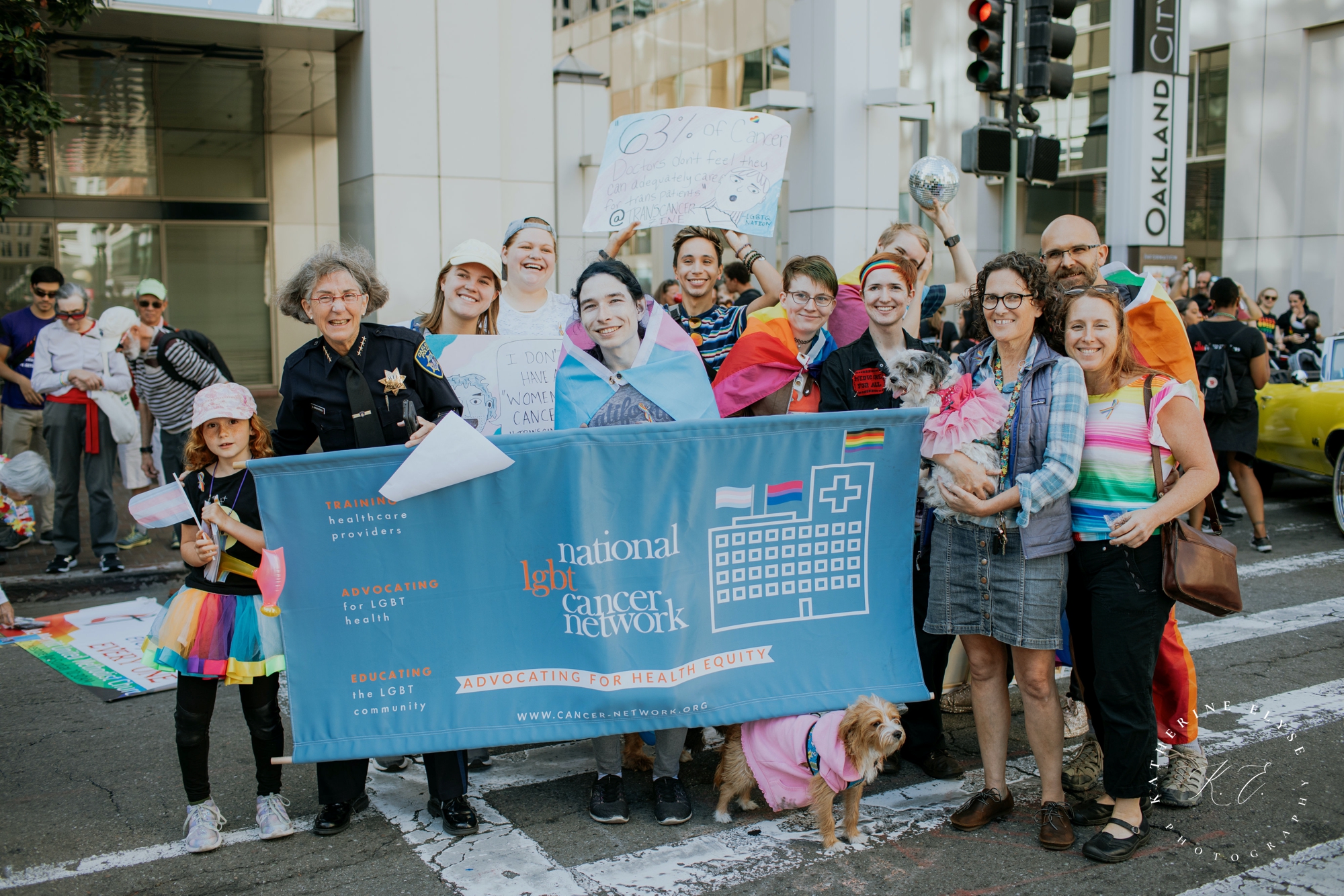
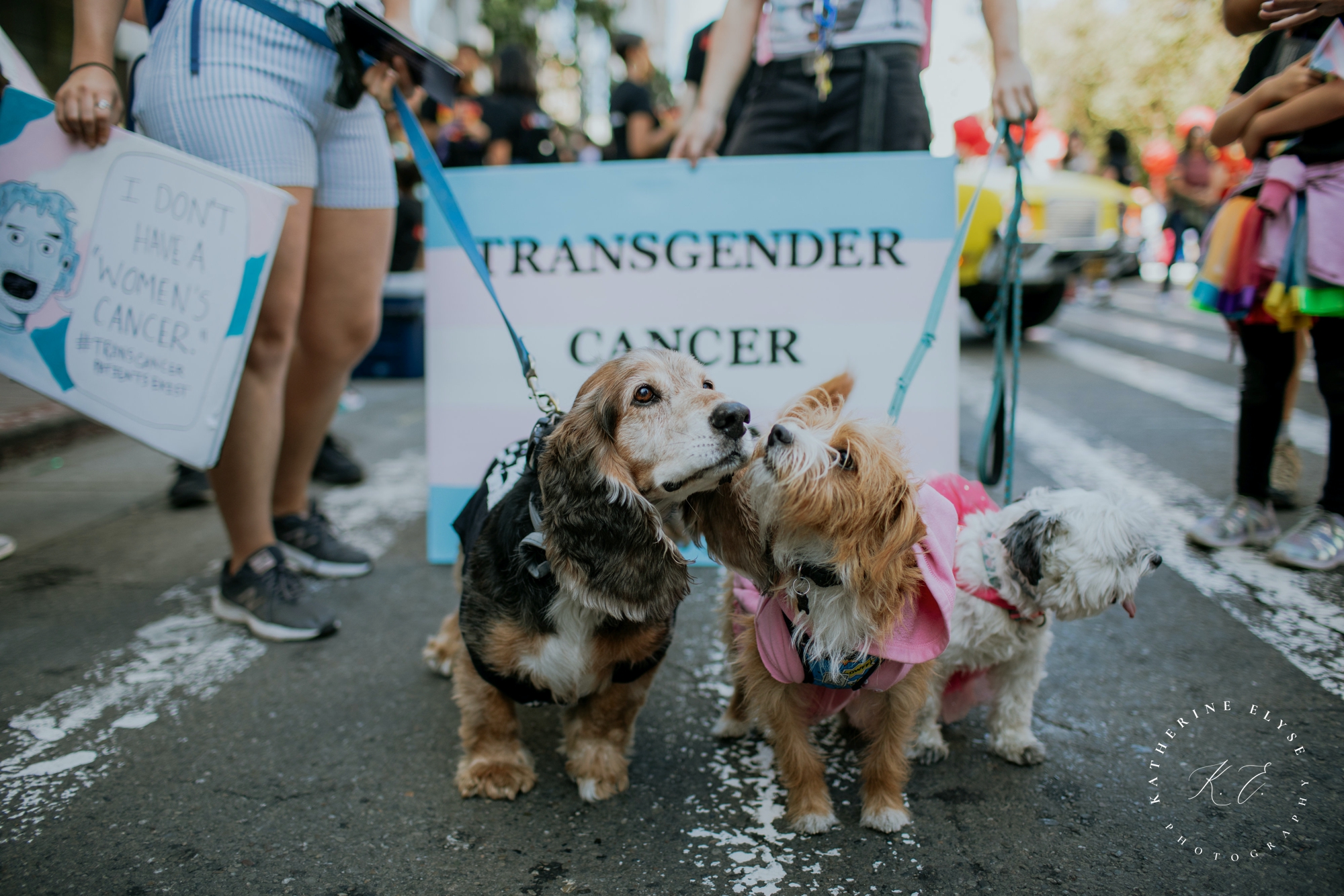
K: Have you ever heard of a story about a trans person facing discrimination in your state, or have you personally been discriminated against for your sexual orientation or gender identity?
C/R: I think that most trans people have faced discrimination in their life. It’s hard to keep count, or really narrow down to just one experience for me personally.
K: Describe your support system.
C: My support system is definitely my family, my partner, and my friends.
R: My support system is mostly Charlie and his family since I live with them and have gone through quite a bit with them.
K: Roman, would you be interested in expanding on your choice to live with Charlie’s family or the reason for/impact that has had on you?
Roman: I moved in with Charlie and his family after we were both accepted into SFSU last year. I was living in Oregon at the time, and since we had been dating for over a year and wanted to be closer to each other anyway, it just really worked out for me to come here for school. It’s been great to feel so easily accepted into the family.
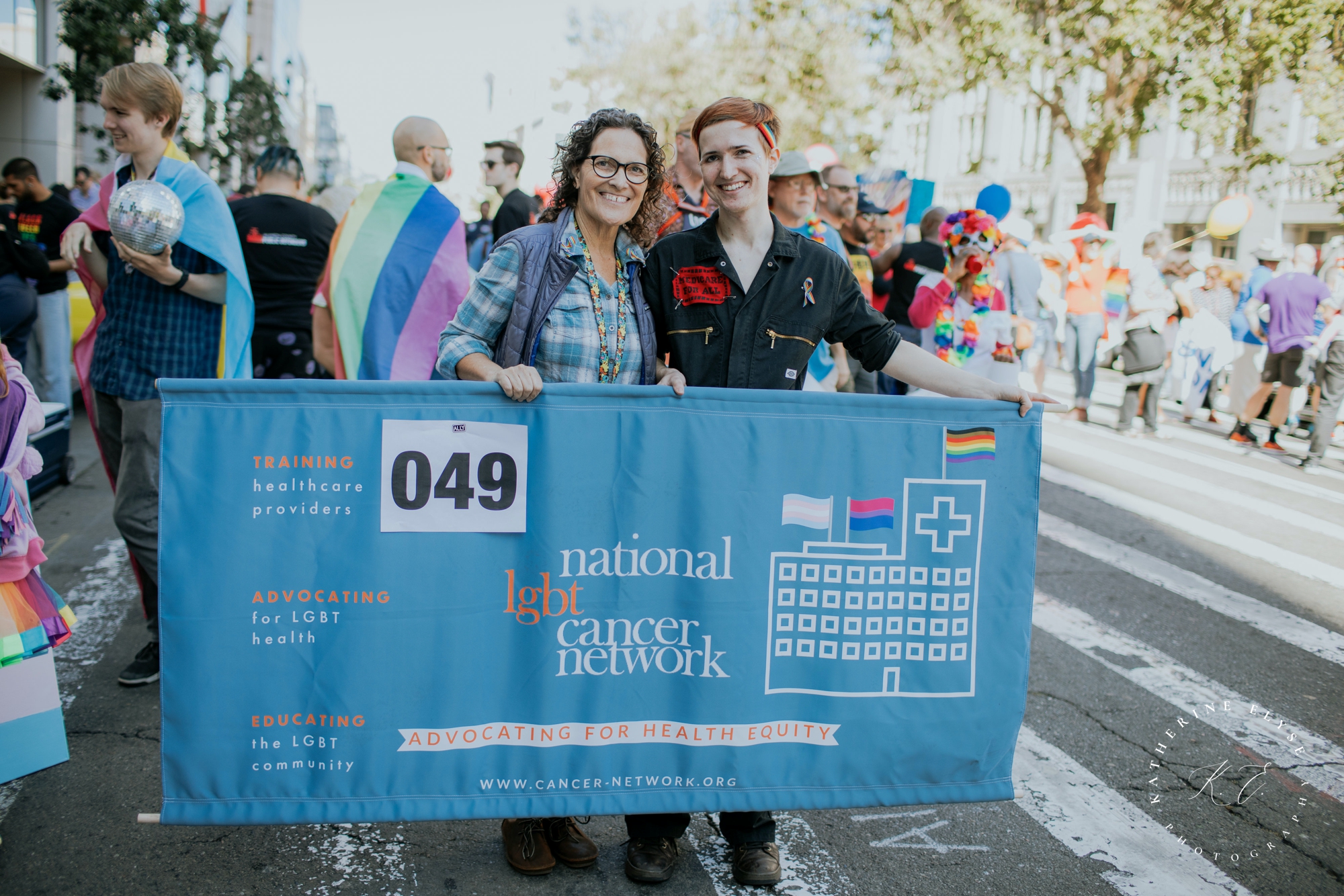
K: Are there any defining moments in your journey you’d like to share?
Roman: Not particularly, lots of ups and downs for sure!
Charlie: I think that we’re constantly learning and growing, and so it’s hard to point to specific moments which I think have mattered the most — they all have. Every time I meet someone through our project or support network, I have a new favorite moment, and a new favorite person I want to lift up.
K: How have your friends and family supported you in your journey?
Roman: This is a hard question to answer because life seems to change so drastically so often.
K: What are some common misconceptions you’d like people to have a better understanding of in regarding trans folks?
Roman: Probably that there are more of us than they think there are. People that don’t know me very well will make comments about gender stereotypes or about trans people all the time, working off the assumption that there are none around, or that trans people are some kind of anomaly. But this isn’t true, trans people are everywhere.
K: Any advice on how to be a good ally to the trans community?
C/R: A lot of the work that we do is on creating environments that reflect different experiences, bodies, and identities. A big recommendation from us is to think critically about the steps being taken to make something more inclusive: are these steps exceptions to a rule that centers the exclusionary system in place, or are the rules being changed to include more people fundamentally? For example, making sure that trans people won’t be denied care at a “women’s health clinic” is good, but given the fact that not only women seek the services available there, how about changing the title of “women’s health clinic” to something gender neutral? To take it even further, questioning how and why these “gendered” services are separated in the first place, and how it impacts all people, can help us understand that these health spaces really can, and should, be re-imagined with every body in mind. Re-imagining systems for the purposes of inclusion, not just on a surface level, is something that we need more allies to be thinking about and advocating for.
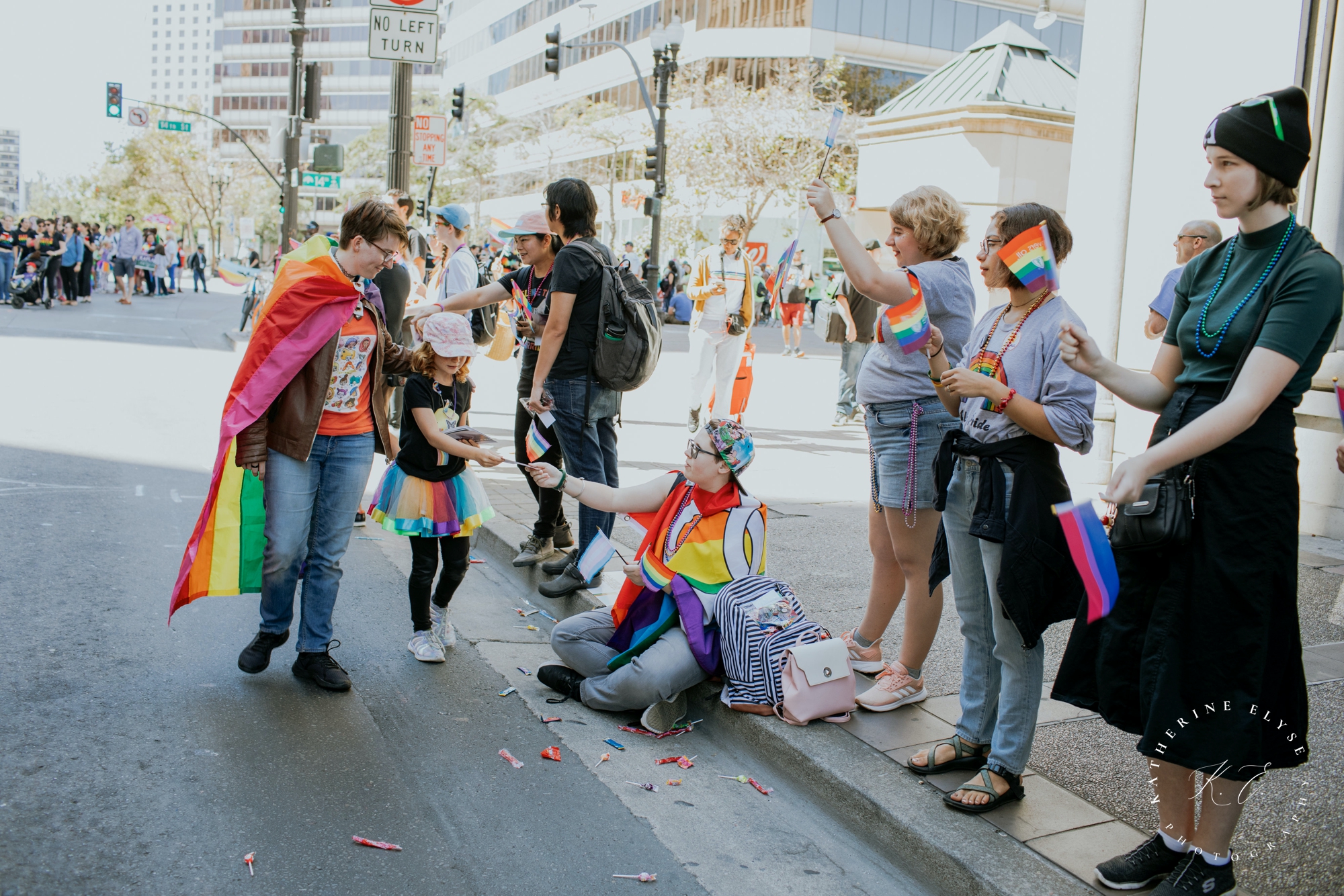
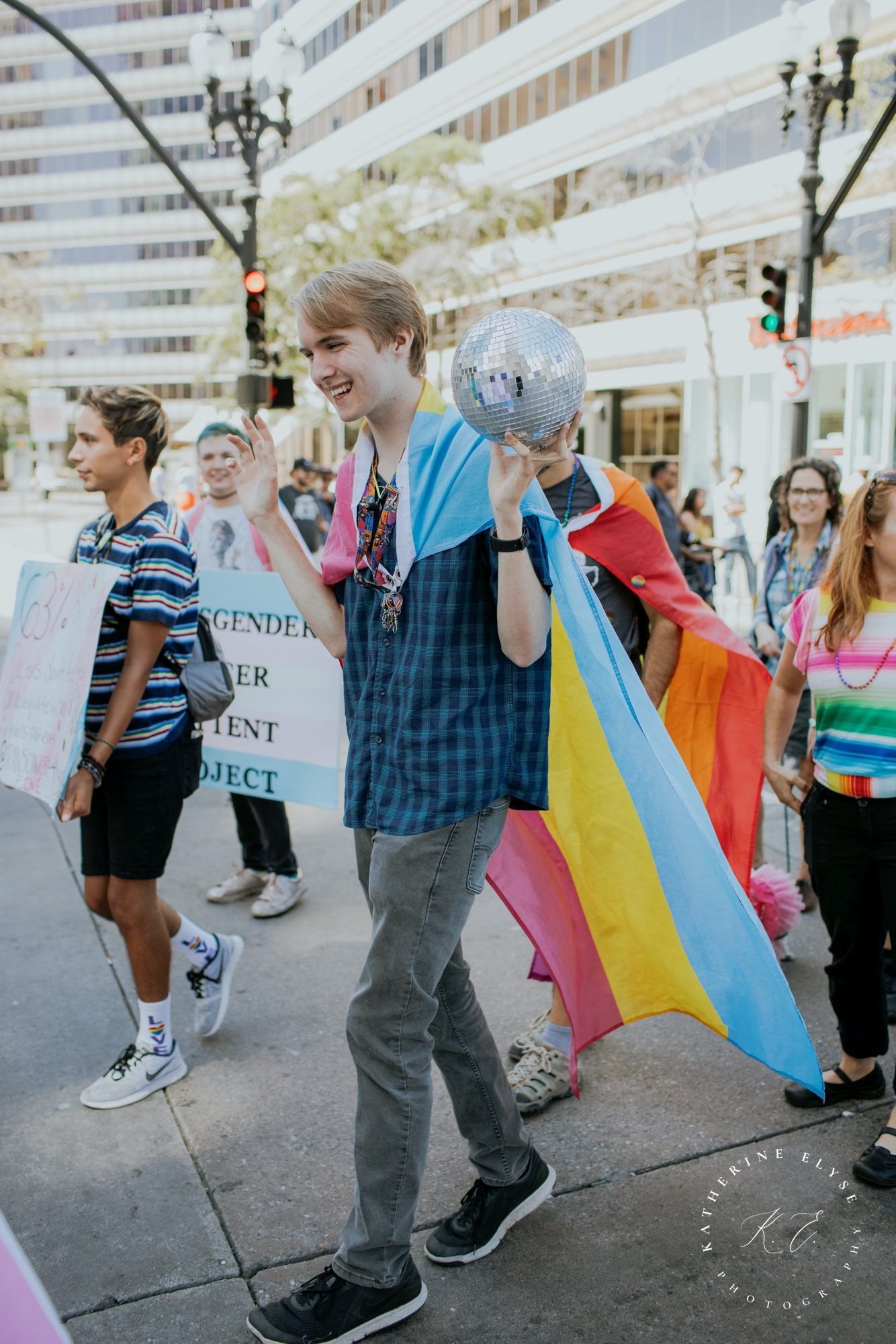
K: Are there any causes that are particularly important to you that you’d like to shout out?C/R: Yes! Black Lives Matter! Black trans lives matter! Black cancer patient’s lives matter! Racial justice and representation is also severely lacking in healthcare and cancer spaces and we need to uplift Black and Black trans voices on these subjects whenever we can.
K: Anything else you’d like to add?
C/R: Check out our social media to learn more about what we do @transcancerzine!
Like this:
Like Loading...
More From The Blog








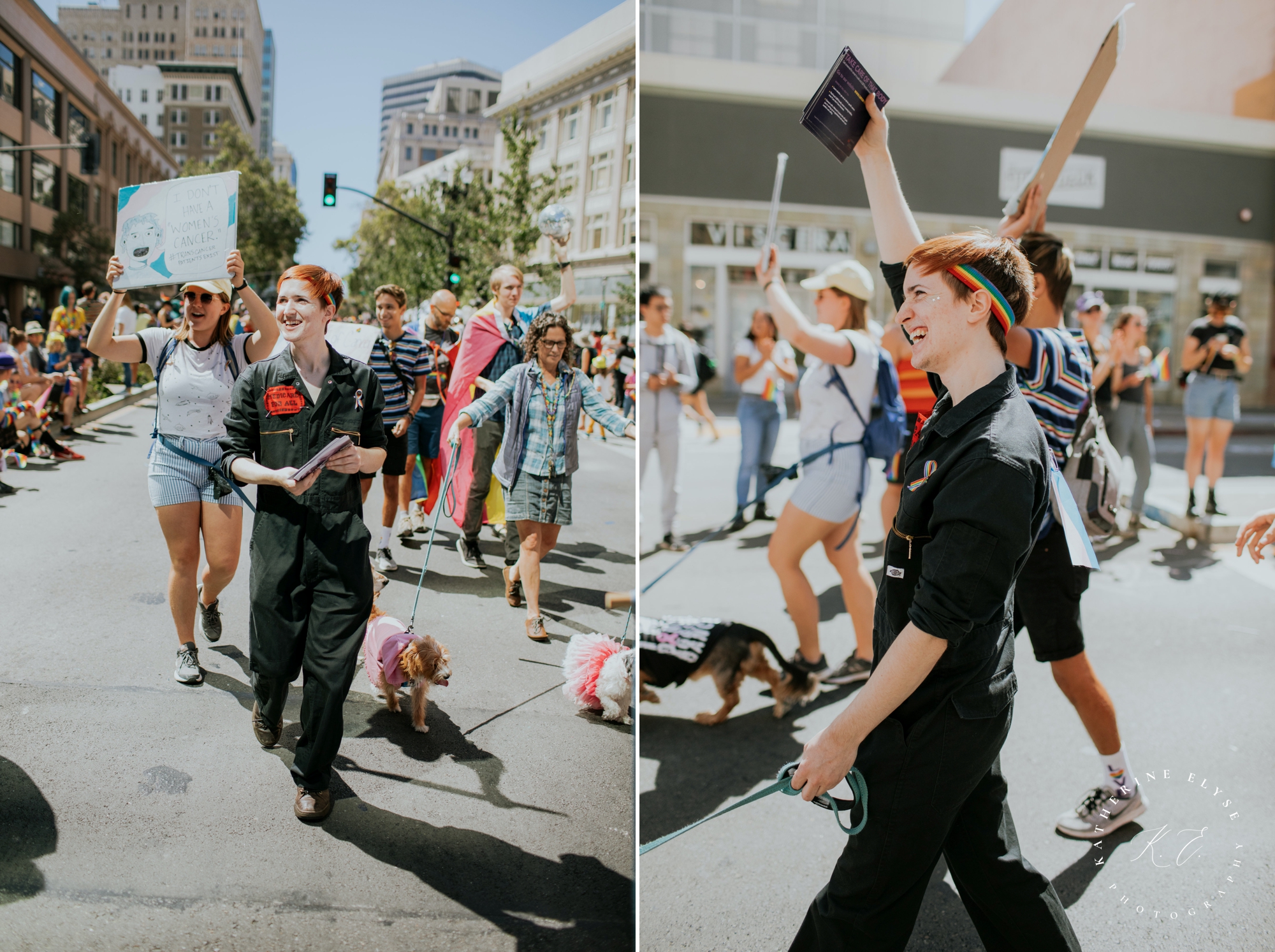
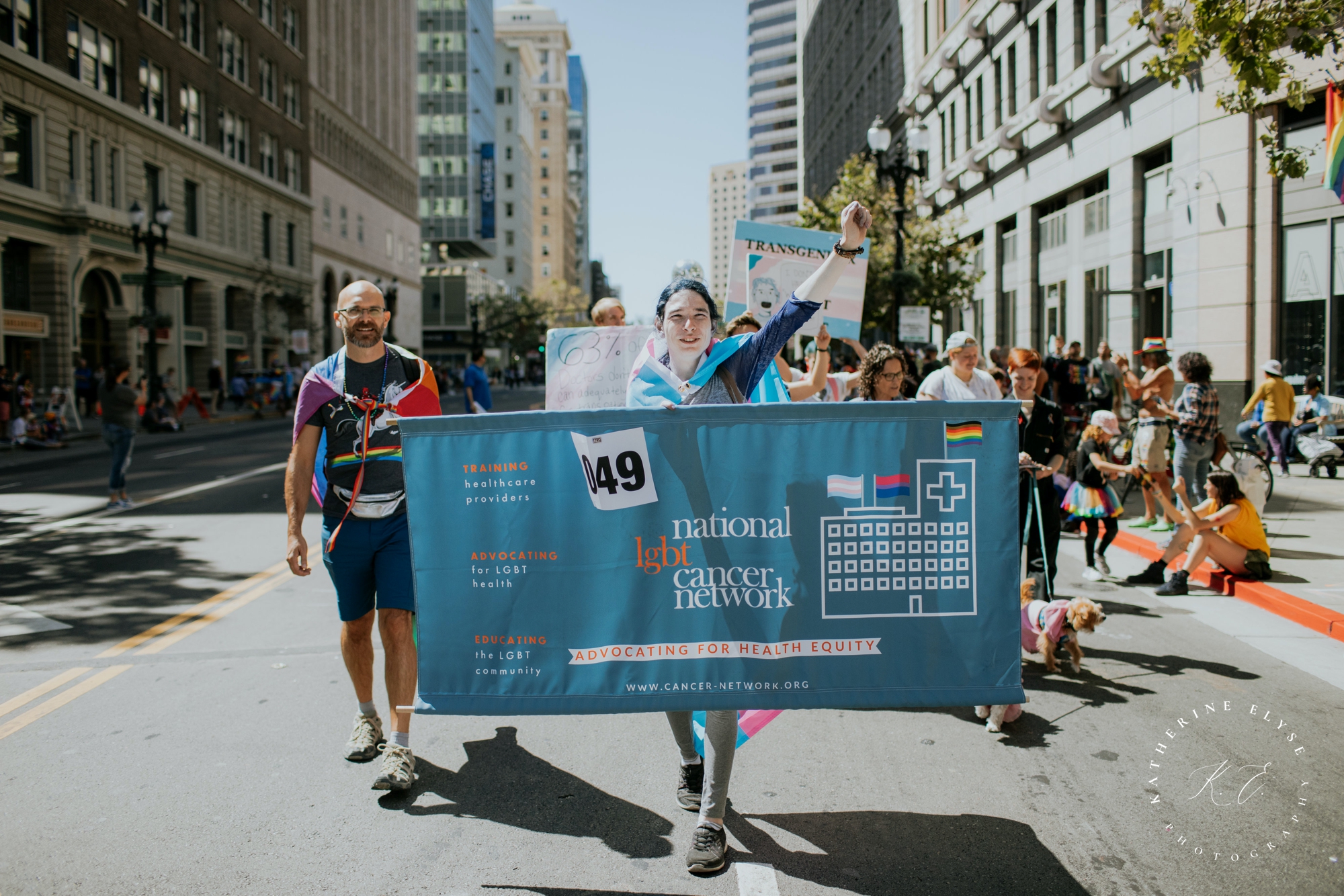


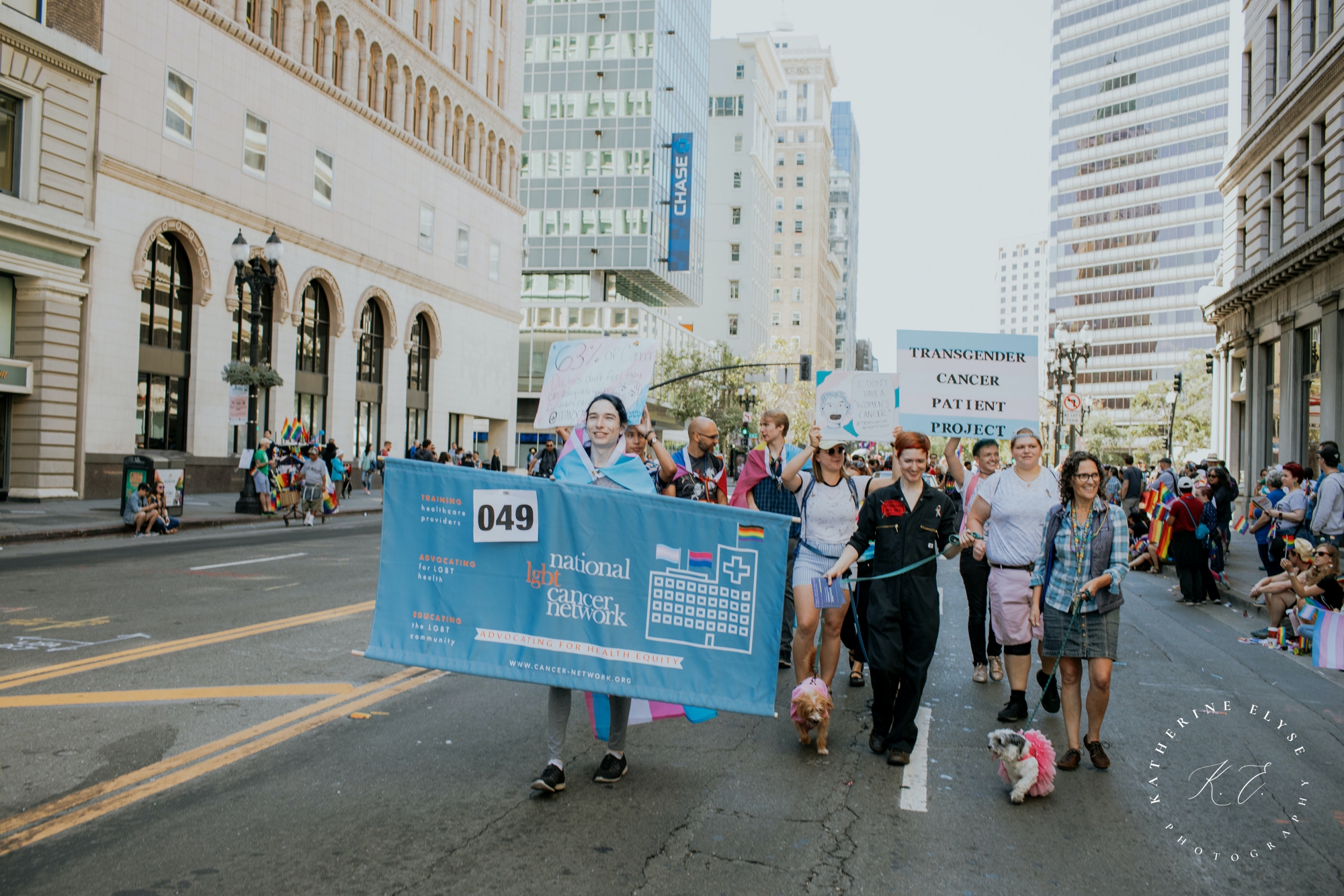
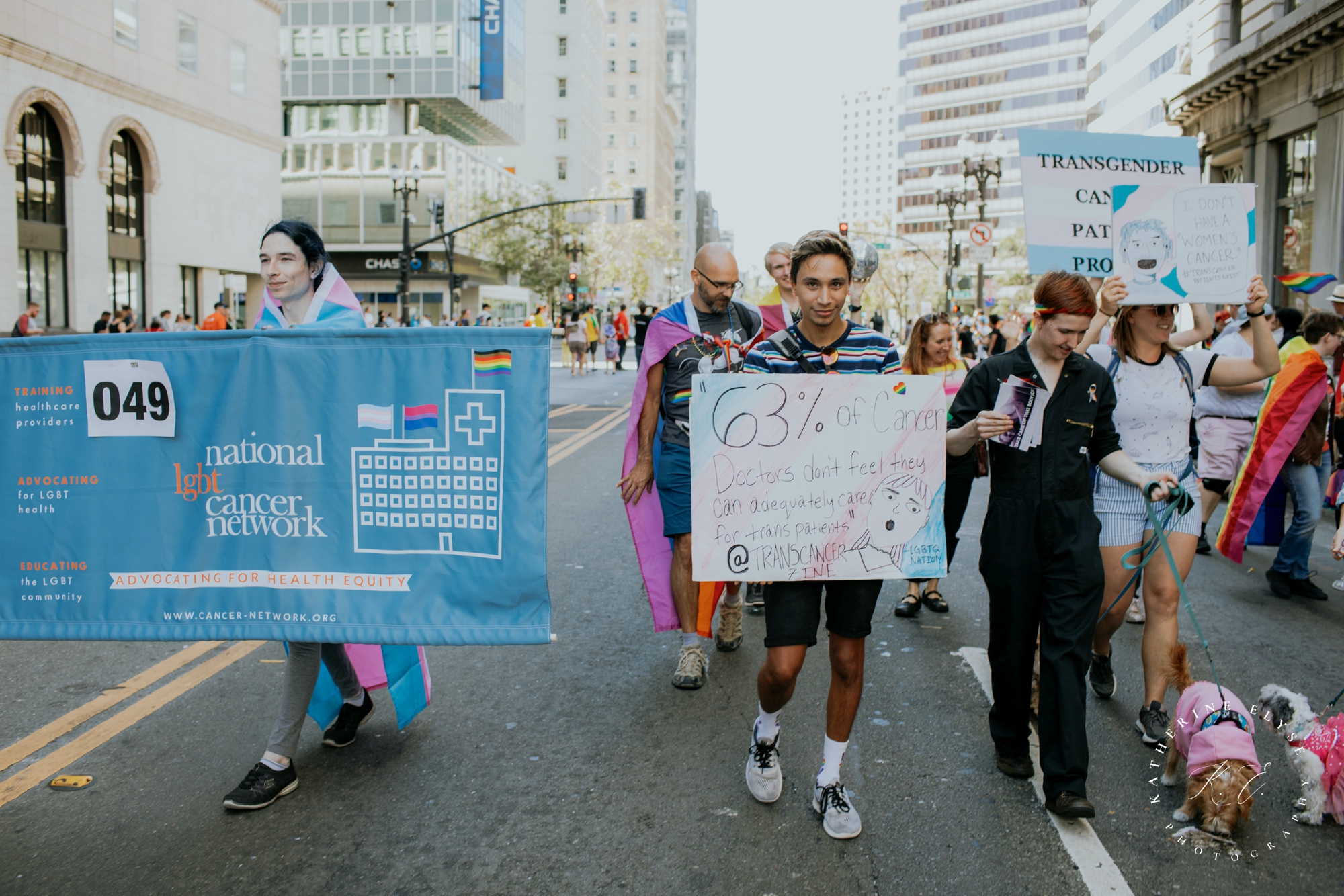
Comments Off on To Be Trans: Charlie and Roman